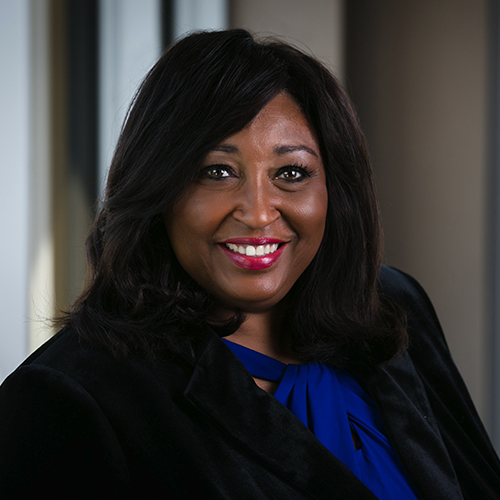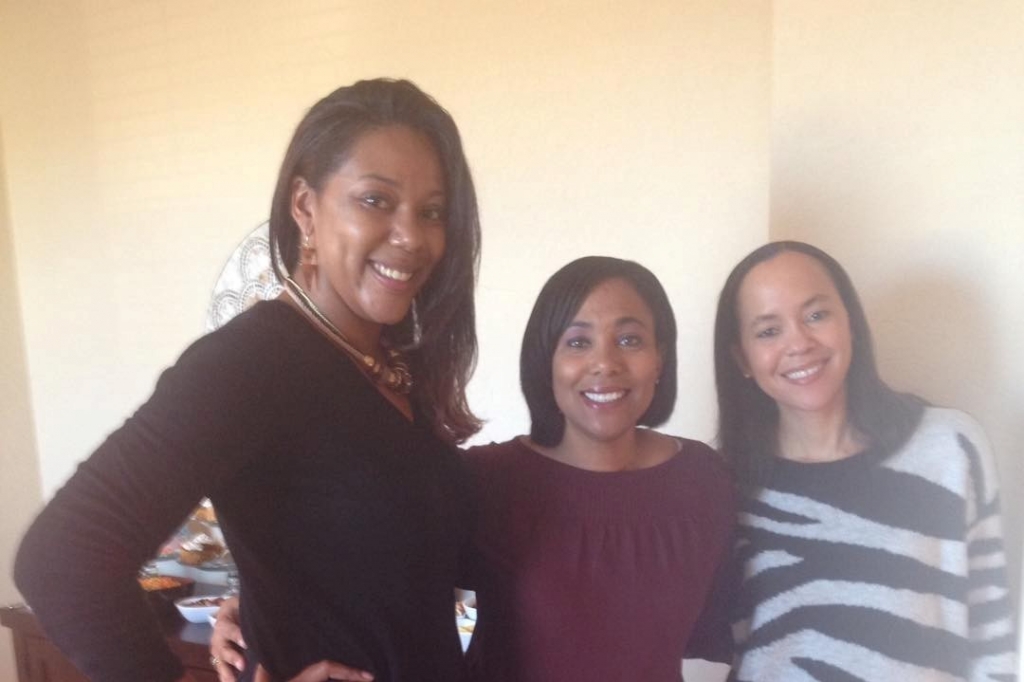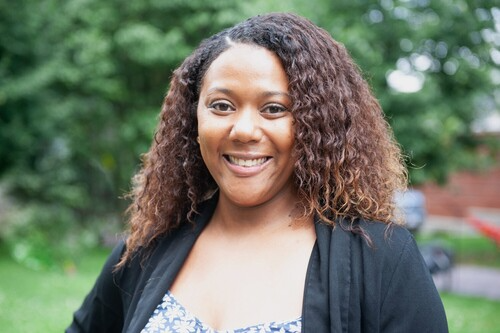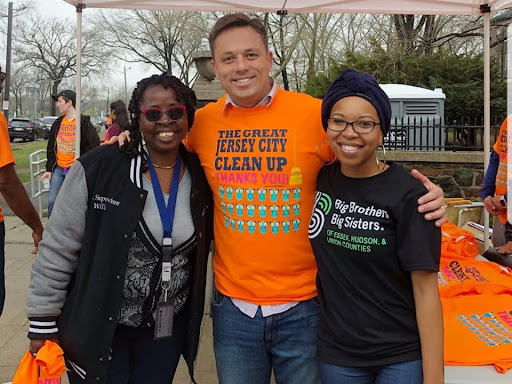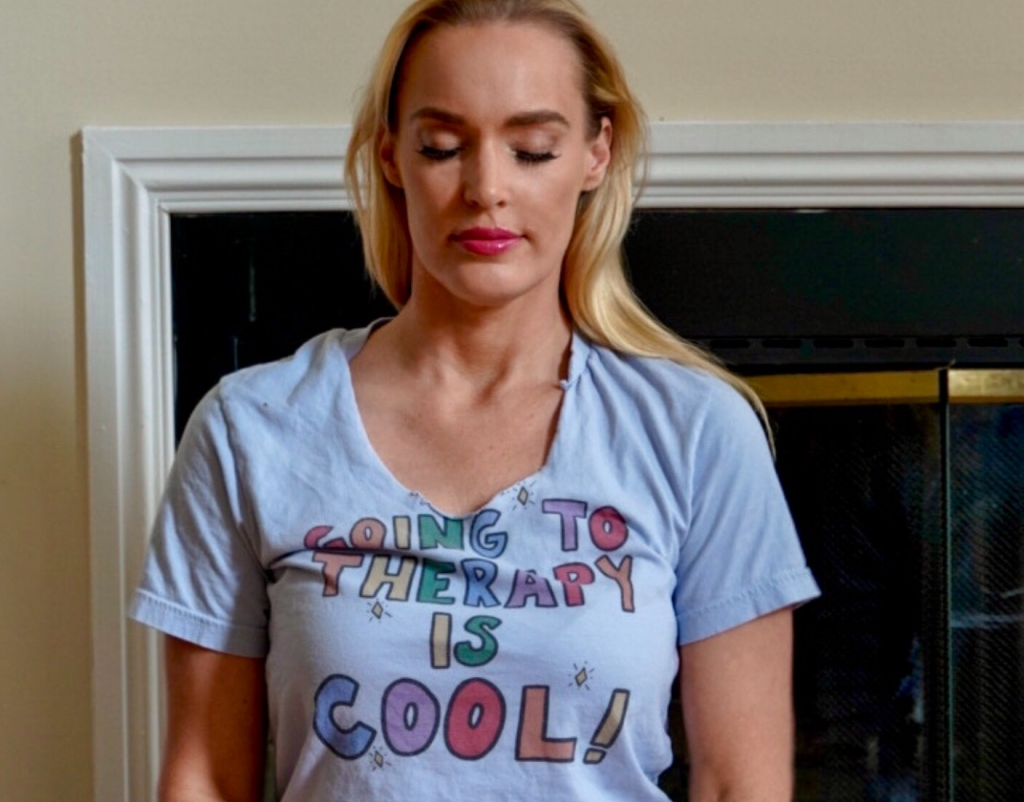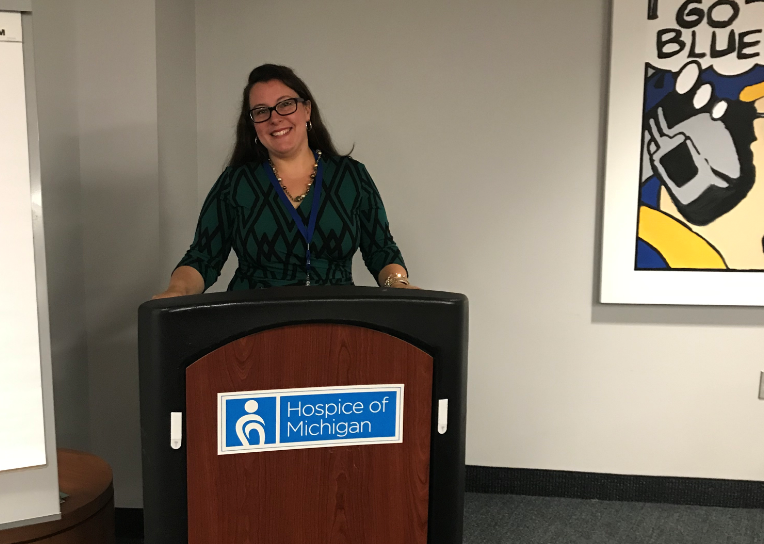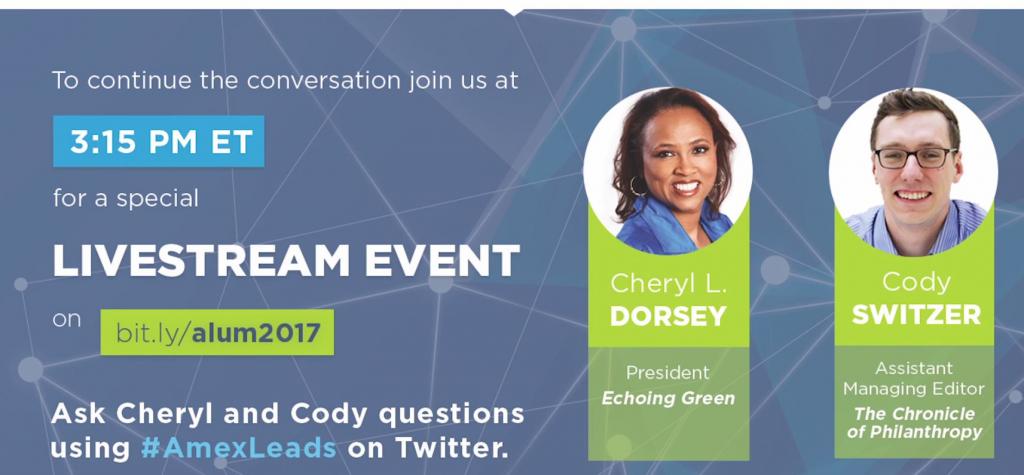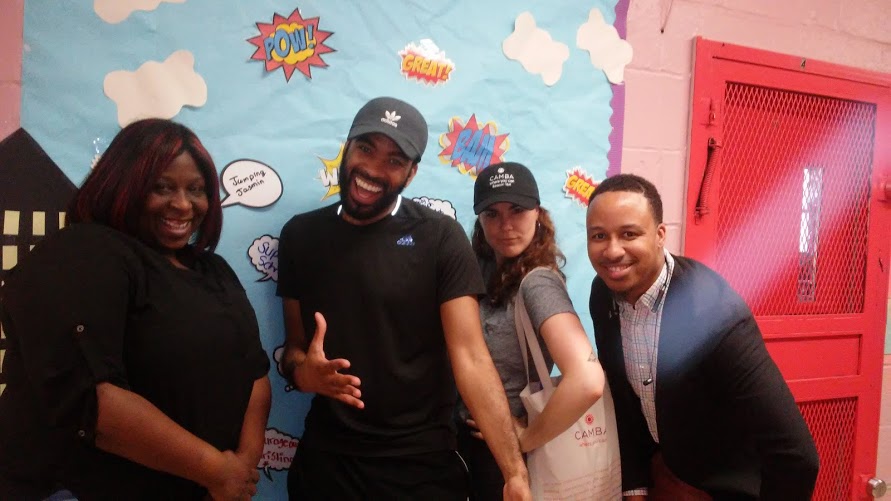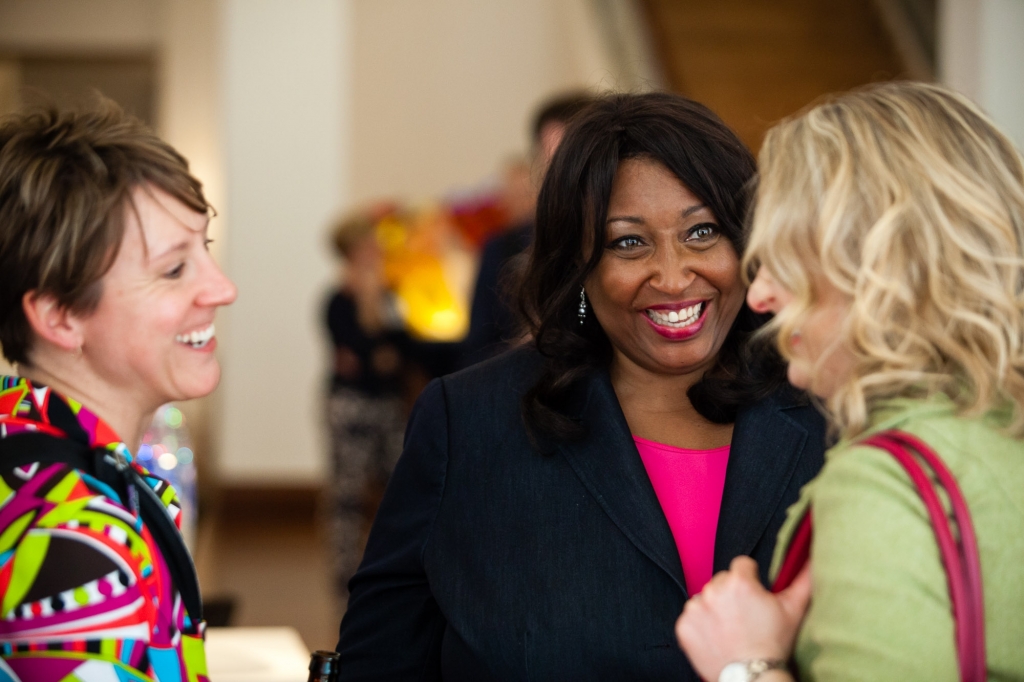
Successful leaders may not feel they can be radically transparent and vulnerable about the barriers or struggles they encountered along the way. Janine Lee, President and CEO of the Southeastern Council of Foundations (SECF)—a membership association of more than 340 grantmaking foundations and giving programs working together to strengthen and increase philanthropy in 11 Southeastern states—has made it a point to speak candidly about her life, including her early experiences with poverty and domestic violence, to foster a culture of honesty in the communities in which she works.
“I think about all the people out there who are under-resourced, poor, marginalized, hurting and needing support. When I think about those people, it always connects to who I am and what I came from and what my struggles were,” Lee told LeaderStories after attending Independent Sector’s Upswell 2018, where she shared her own leadership journey. “I know how transformative philanthropy can be because I’ve received philanthropic resources from very benevolent individuals, organizations and institutions. Were it not for that generosity, I would not be standing in front of the group at Upswell or leading SECF.”
We spoke with Janine about her leadership journey, her passion for equity and what keeps her going.
Vulnerability as a Tool for Growth
How did your early experiences shape you and lead you to the work you do today?
Growing up, there was a time when I was very much ashamed and quiet about my struggles. I was the classic child of an alcoholic who was an overachiever. I did a lot of things to cloak the fact that I had a lot of hardships. I wanted people to see me and my family in a proud way. I hid the fact that I was on the free lunch program. I hid the fact that I qualified for grants because my family was low-income. I hid the fact that I had an alcoholic father whom I would have to step over when I came home.
I never wanted friends to come over to my home because I was ashamed of it. My mother was a victim of domestic violence; she was hospitalized for it, more than a few times. I was observing those behaviors, and I was a victim, too. I know what alcohol and drug abuse can do to a family. I understand what poverty and not having enough can do to a family. I know what limited resources can do, and how resources can be transformative in a family’s life. In this way, I understand the struggles that many families are going through.
So, when I consider philanthropy, I feel that all I’ve been through growing up and the obstacles I’ve had to overcome have strengthened me emotionally and as a leader, and strengthened my motivation to overcome and to give back.
I wanted to create a greater opportunity for dollars to be deployed with more compassion and equity and in ways that can truly make a difference in the lives of children and families.
I saw philanthropy as an opportunity to help be transformative. I knew that by working with SECF, I could reach leaders in philanthropy who are in the position to deploy resources and help work with them to better understand our region and effectively address its challenges. I’ve seen a lot of interventions that weren’t always done well; I wanted to strengthen philanthropy to help create greater opportunity for dollars to be deployed with more compassion and equity and in ways that can truly make a difference in the lives of children and families.
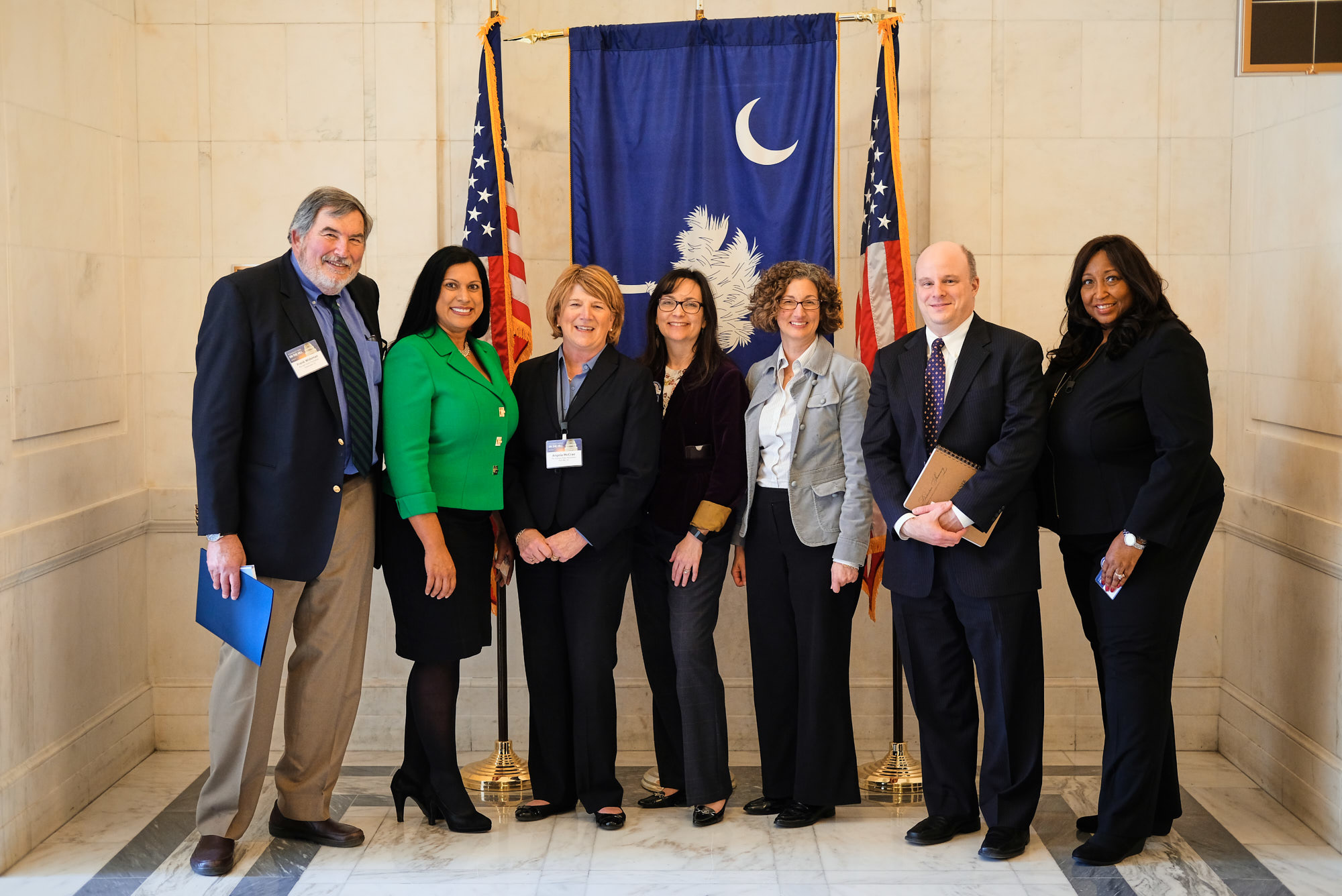
Why did you decide to go into the “for purpose” sector?
When I was in college, I knew I wanted to be in a helping profession. A big part of that was inspired by what I had been through personally, so I started out as a drug and alcohol treatment counselor at a treatment center in Topeka, Kansas. I thought that’s what I was going to do forever, but I found that seeing people relapse was challenging.
I wanted to help people on the treatment side, but another part of me wanted to be a resource to people before they got to that place—so I found a position that was focused on prevention education for children and their families. I became the director of the Alcohol Awareness Project, which was based at a community college and designed to support communities in a pretty disinvested area of Kansas. I built that program slowly over time, expanding it through more staff and grants from foundations, creating something now called the Wyandotte County Regional Prevention Center in Kansas City – it still exists.
I became known for the work I was doing there and was invited to serve on the Governor’s Taskforce for Substance Abuse Prevention. Through that, I was recruited to work for Project STAR, a drug and alcohol educational prevention program that was created by Ewing Marion Kauffman. I joined as an urban specialist to help them build their program in urban communities.
We were beginning to talk about how to scale the Project STAR programs when Mr. Kauffman died, leaving about $800 million to the foundation. That meant we would need to become a grantmaking foundation, as we transitioned from an operating foundation. In our strategic planning to become a grantmaker, I spoke to a lot of people who led foundations across the country. We decided we’d have a couple interest areas: building community and education.
I stayed at the Kauffman Foundation for 15 years, building our philanthropic work and supporting our youth advisory board. I was eventually recruited by The Arthur M. Blank Family Foundation in Atlanta to lead their education programs.
What is your favorite thing about your work?
We all want children and families to have stronger opportunities to improve their chances of success and quality of life. The place-based nature of Southern philanthropy and its connection to community, its passion for transformation, is what excites me about the job.
I want to help people grow into strong leaders and to be clear about what the data and facts say about their communities so they can more strategically deploy their dollars and ensure that folks who most need the opportunity have the chance to transform their lives.
I want to help people grow into strong leaders and to be clear about what the data and facts say about their communities so they can more strategically deploy their dollars and [help people] transform their lives.
What’s one thing that helps you to be the leader you want to be and are, and what’s one thing that you find that sometimes gets in the way of it?
One thing that helps me to be the leader I am is leading with integrity. That’s an important foundational part of leading. From there, you can get to transparency and openness and honesty and trust, even sometimes when it hurts.
What gets in the way? Sometimes, different agendas, self-interests or politics get in the way. People are motivated by different things. Not everyone is in philanthropy to be altruistic or benevolent. They're just not. Being realistic about what you’re seeing and determining where you can navigate is important.
What is something that people don’t know about you from reading your resume?
Just from reading my resume, they wouldn’t know how inspired I was by my mother, who eventually became a single parent and never made more than $15,000 in her life. She raised six kids, I was the youngest girl. She was one of the smartest people I ever met but she only had one year of college. She worked harder than anyone I ever met, and she instilled a strong work ethic in me. She passed four years ago and it was difficult for me to lose her.
They may not know I’ve been married and divorced and have two grown sons and one granddaughter whom I am very proud of, and who has taught me so much about joy! Or that one of my favorite parts of what I do is working with an amazing Board and staff who are deeply committed to the work. I have so much energy every day – I get to come into our office in downtown Atlanta and spend time with folks and do amazing things together in order to inspire our members and support change in the community. I really enjoy the work I do.
What’s one piece of leadership advice you’d love to give?
I have a couple of mantras. One of them is to listen, learn, and lead, in that order. Another is that culture eats strategy for lunch.
More directly, I personally feel very strongly that you get the best chance to see who people are, what kind of leader they are, in times of adversity. If you truly want to understand how someone leads, how they think, how they make decisions, observe them when their back is against the wall and give them a challenge and see how they come out of it. The most professionally mature people will be thoughtful, dig deep, and connect with their own values system, and they will come out soaring. I often watch how people handle themselves when things get tough. It’s all in how they make decisions during that time that says whether they’re going to be successful.
I often watch how people handle themselves when things get tough. It’s all in how they make decisions during that time that says whether they’re going to be successful.
Is there anything else you want people to know about your leadership journey or about being a leader?
In terms of being a leader, it’s so important to have compassion for people, to listen and to care. If you don’t genuinely care about the people you work with, I don’t know how you can motivate and inspire them. A big part of leadership is understanding who you are and leading from the inside out, with trust, passion, integrity and understanding. If not, people may follow you, but they won’t respect you.
I also believe in vulnerability. It is through vulnerability that people will be honest with you. If people are willing to be vulnerable, and share their fears or shortcomings, you should always see that as a strength rather than a weakness. If you treat that openness and vulnerability in the most respectful way, you’ll get the very best out of people.

